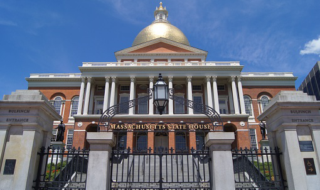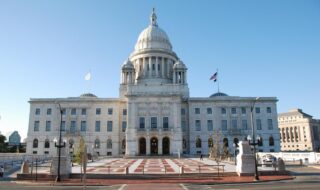July 11, 2023 Last Edit: June 5, 2025
Beacon Hill Push for Onerous Minimum Wage Hike Would Cost Main Street Jobs
(BOSTON, MA) July 11, 2023 – A proposed bill in the Legislature to drastically hike the minimum wage by 33% could lead to significant job losses, income reductions, and closures for small businesses across Massachusetts, according to a newly released economic study commissioned by the National Federation of Independent Business (NFIB), the nation’s leading small business advocacy association. The economic impact study specifically examines a pair of bills, namely Senate No. 1200 and House No. 1925, which were filed on January 20, 2023, for the 2023-2024 Massachusetts legislative session.
The study finds that the proposed bills, Senate No. 1200 and House No. 1925, which proposed increasing the state’s minimum wages by 33% to $20 per hour, could lead to significant job losses, income reductions, and closures for small businesses across Massachusetts.
The study concludes that if this legislation becomes law, over the next ten years as the size of the proposed minimum wage increase grows, there is a negative employment impact of almost 23,000 jobs or 0.5% of the state’s employment base. Further, more than 13,000, or 57%, of those jobs are in small businesses. Also, by 2033, there is a negative economic output impact of over $3.4 billion, or 0.25% of the state’s economic base. Almost $1.8 billion, or 52%, of that economic output, is produced by small businesses.
“Predictably, the negative impact of these one-size-fits-all, extreme wage hike bills would fall disproportionately on small employers, who will not have the cash reserves or profit margins to plan for and absorb the aggressive increase in labor costs that larger corporate and chain employers do,” said Christopher Carlozzi, NFIB State Director in Massachusetts. “Massachusetts’ Main Street businesses face an ever-increasing number of challenges following the pandemic and state-mandated restrictions and lockdowns. Inflation, labor shortages, supply chain disruptions, high fuel prices, spiking utility rates, and crushing UI taxes imposed by state government are dragging down Main Streets across Massachusetts. Small business owners simply cannot afford Beacon Hill politicians saddling them with such drastic labor cost increases.”
Many small businesses will not be able to afford these higher wages and the payroll taxes that accompany them. There will also be immense pressure on labor costs up the pay scale. NFIB argues that Massachusetts lawmakers should be providing financial relief to small, independent businesses, and not continuing to burden Main Street with higher costs and mandates.
NFIB commissioned this study (“Economic Impacts of a Proposed Minimum Wage Increase in Massachusetts,” May 2023) by Regional Economic Models, Inc. (REMI), after indications that the Massachusetts Legislature will consider an extreme increase in the Commonwealth’s minimum wage, increasing the rate by 33% to $20 per hour and establishing annual, automatic hikes thereafter by the state’s Executive Office of Labor & Workforce Development.
NFIB is a member-driven organization advocating on behalf of small and independent businesses nationwide.
Related Articles














